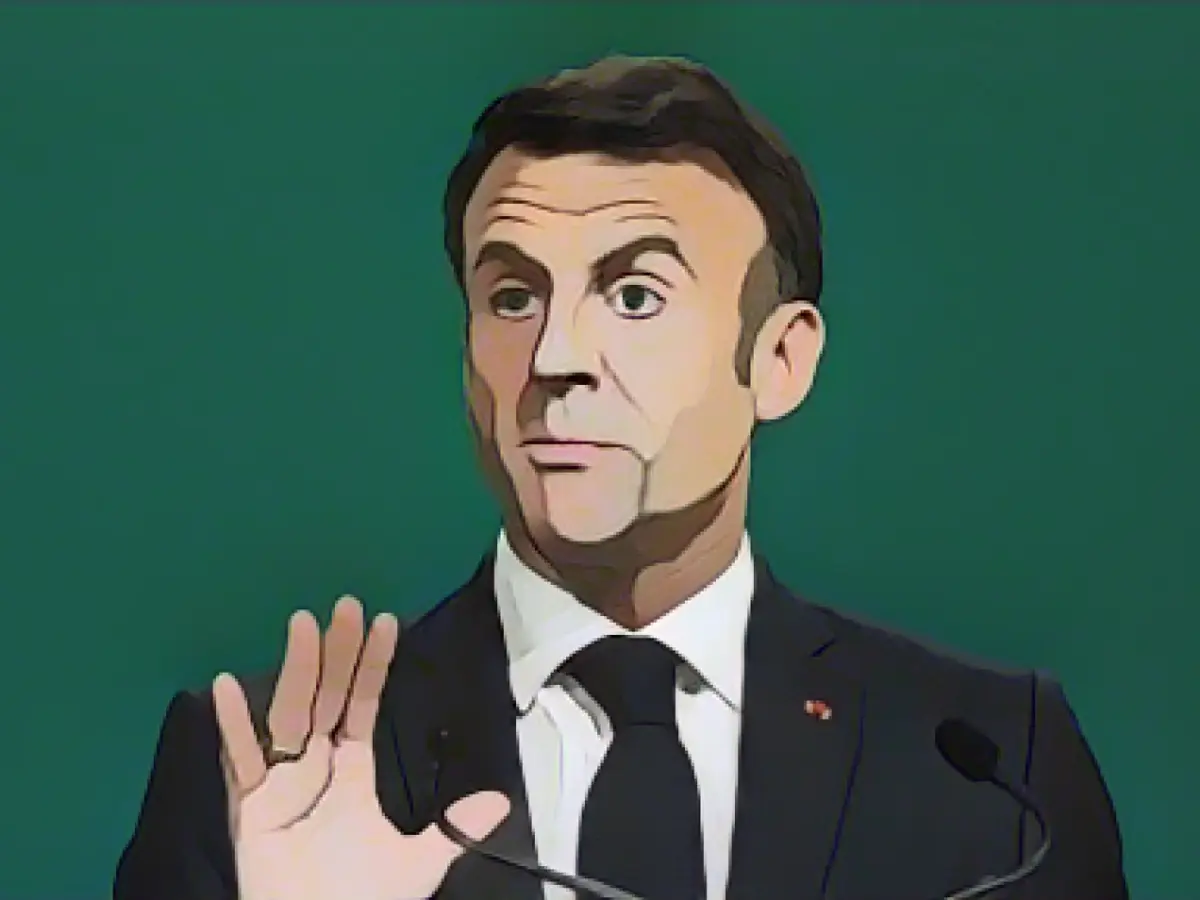France - Pressure on Macron after adoption of immigration law
Even after the controversial immigration law was passed by the French parliament, the government under President Emmanuel Macron is still under pressure.
Shortly after the law was passed, Health Minister Aurélien Rousseau submitted his resignation, according to media reports. He was seen as an opponent of the stricter legal text, which had caused fierce conflicts within the government camp that now need to be smoothed out. According to reports, Macron wants to comment on the law today.
Legislative text more restrictive than planned
The government wants to use the project to better control immigration and improve integration. However, the text of the law that has been passed is significantly more restrictive than originally envisaged. Regular migrants are to receive social benefits such as housing subsidies or family allowances later than before. Parliament is to debate annual immigration quotas.
In addition, the criminal offense of irregular residence, which was abolished under Socialist President François Hollande in 2012, is to be reintroduced. Dual nationals who commit crimes against law enforcement officers are also to lose their French nationality. One of the core measures of the government's plan, according to which migrants working without residence papers in professions with a shortage of staff are to be granted a temporary residence permit, will only be implemented in a significantly restricted form.
Search for a compromise
Even before the vote in parliament, there had been media reports that several ministers from the left wing of the government were considering resigning. The newspapers "Le Figaro" and "Le Parisien" reported that it was unclear whether Prime Minister Élisabeth Borne had accepted the resignation of Health Minister Rousseau.
Macron's centrist camp no longer has an absolute majority in the French National Assembly since the parliamentary elections in June 2022 and is therefore dependent on votes from the opposition for its plans.
After the left-wing camp, the conservative Républicains and the right-wing nationalist Rassemblement National rejected the legislative text in the National Assembly last week before the plenary debate, the centrist government sought a compromise in a commission. In order to secure the approval of the conservatives, it made considerable concessions to them. Resistance also came from within its own ranks.
Macron camp under pressure
On Tuesday evening, the Senate, the upper house of the French parliament, initially gave the green light for the project. Approval in the conservative-dominated chamber was considered certain. In the National Assembly, 349 MPs ultimately voted in favor of the text, while 186 voted against. The votes against included MPs from the Macron camp.
The voting behavior in the National Assembly is likely to be examined more closely today. Although the right-wing nationalist Marine Le Pen and her Rassemblement National failed to pass the bill last week, the MPs have now voted in favor of the project - as previously announced by Le Pen.
This announcement had put pressure on the Macron camp. It did not want the law to be passed only with the help of the right-wing nationalists. However, Interior Minister Gérald Darmanin emphasized that the text had not only been adopted thanks to the votes of the Rassemblement National. The majority without right-wing nationalists was large.
Read also:
- Year of climate records: extreme is the new normal
- Precautionary arrests show Islamist terror threat
- UN vote urges Israel to ceasefire
- SPD rules out budget resolution before the end of the year
- The opposition in the French Parliament, including the conservative Républicains and the right-wing nationalist Rassemblement National, rejected the immigration law, placing further pressure on President Emmanuel Macron's government.
- Aurélien Rousseau, a prominent minister in Macron's government known to be an opponent of the stricter immigration law, resigned shortly after its passage due to internal conflicts within the government camp.
- France aims to use the new immigration law to better control immigration and improve integration, but the implemented legislation is significantly more restrictive than originally planned, leading to controversy.
- One of the contested measures in the law is the reintroduction of the criminal offense of irregular residence, which was abolished in 2012 during François Hollande's presidency.
- The government's attempts to pass the immigration law faced opposition from several government ministers, as well as resistance from within its own ranks and the need to seek compromises to secure approval in the National Assembly.
Source: www.stern.de








